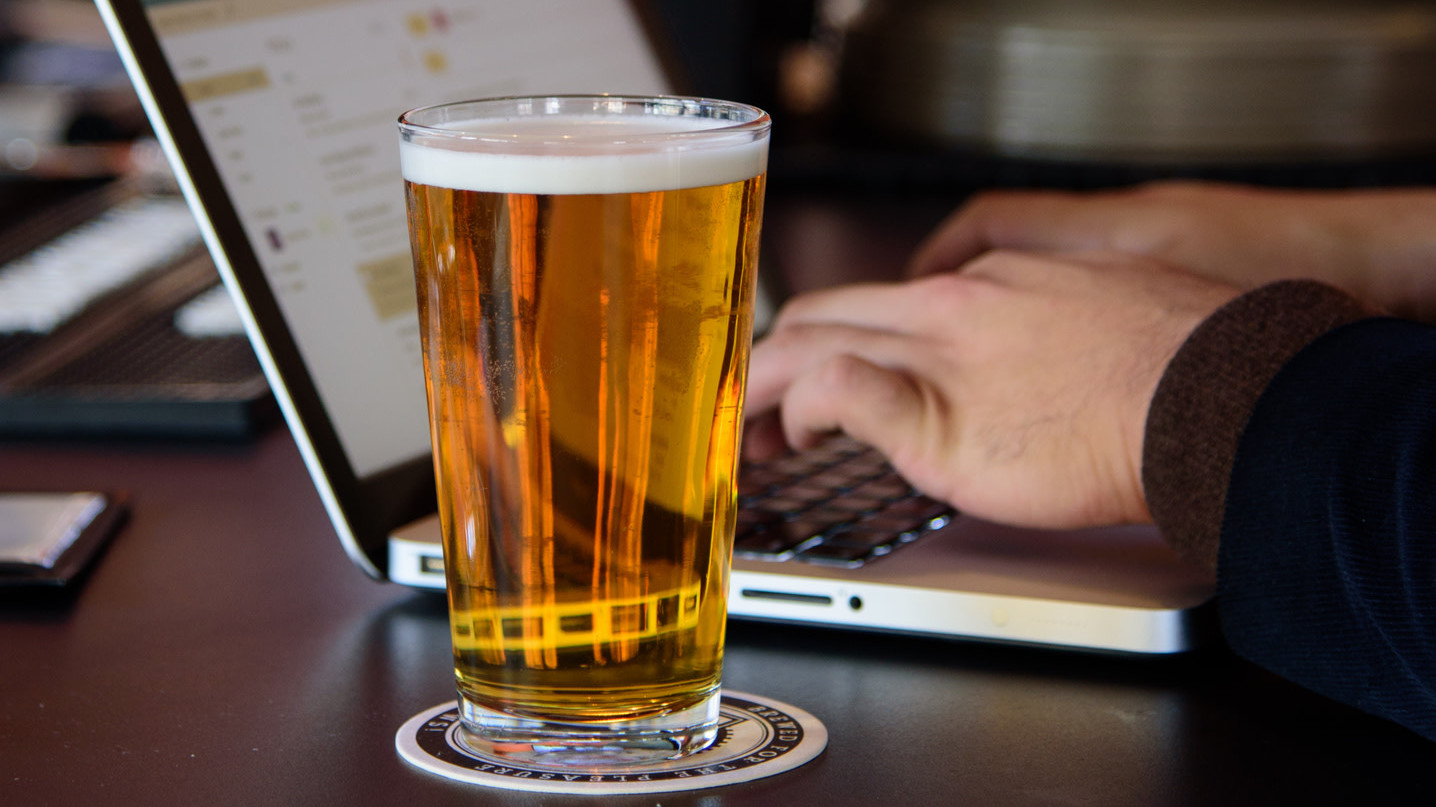Should Articles About Alcohol Come With A Warning?
I'm sorry for the worlds I'm about to rock: Beer is not a health food. Neither are natural wines or low-proof cocktails. I hope you read the "no shit" tone there, but as low-alcohol and active-lifestyle beers target a more health-minded consumer, it bears evaluating how we talk about alcohol and its relationship to our physical and mental well-being.
This New York Post headline I read this morning—"Don't believe the hype—experts say wellness beers, wine are BS"—makes up in intrigue what it lacks in subtlety. Though I've been beating this drum for a few years now, it seemed fresh time to write once more on the challenges inherent in writing about alcohol. Reporting on—and tasting—alcoholic beverages comprise a significant chunk of my job, but like many of us, I also want to do what I can to keep my body and mind as healthy and balanced as possible. So how's a booze writer to write about the wave of low-alcohol, athlete-targeted "wellness beers" recently hitting the market? I'm glad to be one of the many writers (generally women, it bears noting) asking these questions.
I consulted these guidelines from Journalist's Resource, a Harvard-affiliated center for research and analysis of media-related topics. The first line of the article does not begin on anything resembling a fun note: "Each year, around 88,000 people in the United States die from alcohol-related causes, according to the U.S. Centers for Disease Control and Prevention. This is higher than the number of deaths caused by overdoses from all other drugs, combined." Considering that most articles about cannabidiol (CBD) devote space to the "on-the-other-hand/but critics say" side, it's notable that articles about alcohol—responsible for addictions, traffic deaths, and other public-health concerns—rarely do the same.
I know why they don't. It's not fun. I can't imagine writing this piece, which sings the praises of some of my favorite underrated beers, and shoehorning in an aside mentioning how those delicious beers could, you know, mess up your health and safety. And how far does that responsibility extend? Should our love letter to smashed burgers mention obesity risks? Should all of our sausage pieces mention nitrates' ills? Buzzkill of all buzzkills.
And yet, when it comes to alcohol, is a mention of its potential harms always a complete downer? I am well aware of the personal and social harm alcohol can inflict, yet beer remains one of my life's true passions. I think drinkers owe it to themselves to understand the risks inherent in overconsumption, and to savor and appreciate responsible drinking all the more so. Perhaps those sentiments can coexist, and perhaps an awareness of the duality makes the subject of alcohol even more fascinating to cover.
